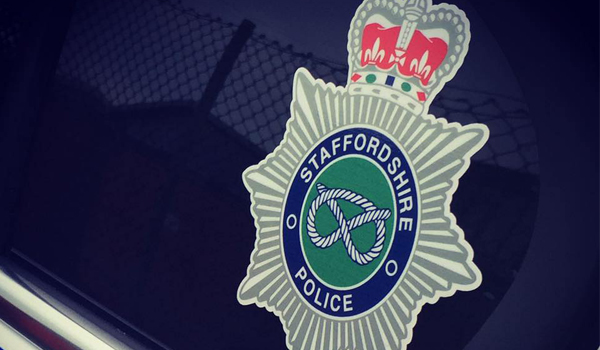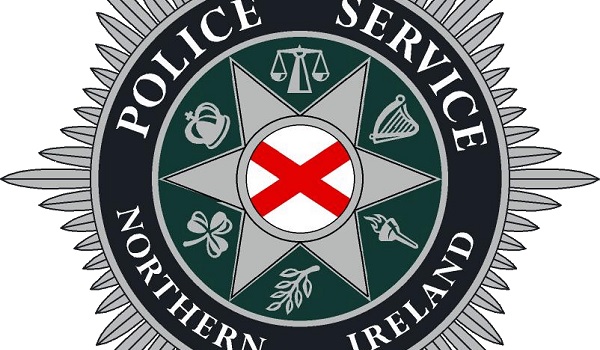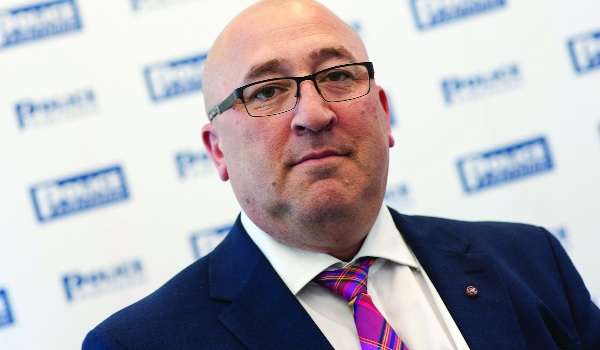HMICFRS report highlights 'serious concerns' for Staffordshire
Staffordshire Police must “urgently improve” its performance after “serious concerns” were raised by His Majesty’s Inspectorate of Constabulary and Fire and Rescue Services (HMICFRS) over how it investigates crime, responds to the public and monitors suspects and offenders.
The inspectorate said the force’s work was “inadequate” in these three areas and was not able to “effectively meet the demands” of some of the work.
The findings were published three months after the force was put into special measures by the watchdog when it was found it had “issues about how it identifies and assesses vulnerability” and “needs to carry out more effective investigations and improve victim support.”
In the latest inspection, Staffordshire was also graded as requiring improvement in five areas: its treatment of the public; because it was “missing opportunities” to protect vulnerable people; over how it records data about crime; as well as needing to do better in developing a positive workplace; and making a good use of resources. It was only found to be adequate in one area of work.
Inspector of Constabulary Wendy Williams said: “I have serious concerns about Staffordshire Police’s performance in responding to the public, investigating crime and managing its offenders and suspects. The force needs to improve in these areas as a matter of urgency to keep the public safe.
“It is missing opportunities to identify and safeguard vulnerable people and needs to improve how it provides advice about preventing crime and preserving evidence when taking calls from the public.
“The force’s investigations need to improve through proper planning, regular supervision and following the Code of Practice for Victims of Crime. At present, it doesn’t always properly support victims, accurately assess their needs or pursue evidence-led prosecutions where appropriate.
“Staffordshire Police also needs to improve how it monitors known offenders and outstanding suspects. At present, it isn’t able to effectively meet the demands of this work.”
According to the report, the force did not record more than 8,900 crimes during the year covered by the inspection.
It took more than a week for the force to record and classify 377 of the 429 reports of crime reviewed by inspectors, including allegations of rape, child protection cases and crimes involving vulnerable adults.
The report said: “Crimes must be recorded at the earliest opportunity. Recording them without delay means victims of crime promptly receive the support they require and ensures an effective investigation is established.”
The force will continue to be subject to so-called enhanced monitoring by HMICFRS as part of the engagement process, known as being put into special measures.
Ms Williams said: “I am reassured by the force’s proactive response to our inspection and so far during our monitoring process. The force has developed robust plans to improve, which are in the process of being introduced, and we are beginning to see positive signs in some areas. This approach allows for cautious optimism, and I will continue to closely monitor the force’s progress.”
Chief Constable Chris Noble, who took charge of the force in December, said he “fully” accepts the findings of the report and is “committed to addressing its recommendations”, adding: “We are already well under way with these improvements, a fact recognised by the Inspectorate.
“This report will be concerning for Staffordshire residents but we have specific and clear plans to deliver the standard of service our communities expect and deserve. This will not be an easy journey and it will take time to embed and fully realise improvements – but it is one I and my staff are fully committed to.”
He added: “Policing, because of Covid and pressures on other agencies, has become more complex and demanding since the last PEEL inspection and our officers and staff are operating under increasingly challenging circumstances.
“Despite this, they remain dedicated to providing a service which secures a safe and confident Staffordshire. They are, however, under pressure and alongside improving the service to the public I am also focused on supporting my staff and giving them the tools and time to do their job.
“Despite these challenges, the most recent national crime data shows that Staffordshire Police remains one of the safest places in the country, with one of the lowest levels of crime recorded out of all 43 forces. But, we want to make it the safest.
“In order to achieve this, we launched our new local policing model in June of this year. This has increased the number of officers based in local communities, meaning we can respond more quickly to emergencies.
“Our response teams are now based at the same local police stations as neighbourhood officers, working more closely together and with other local agencies to problem solve the issues that really matter to our communities.”
Mr Noble said other changes include bringing together the teams that investigate the most serious crimes, such as serious violence and sexual assault, which will allow it to “provide a more consistent service for victims of these crimes and other vulnerable people”.
“As part of our return to a local policing approach, we have launched a bespoke operation which will see us put policing back on the front foot in Staffordshire – executing warrants, arresting suspects, delivering appropriate stop and search and patrolling visibly in our local towns and cities,” said Mr Noble.
“We have not waited for the HMICFRS report to land. In anticipation of its recommendations and findings, we have invested in our force contact centre, recruiting significant numbers of additional staff to help reduce wait times on 999 and 101 calls. We are starting to see call waiting times reduce, at a time when all contact centres across the country are under huge pressure.
“To focus everyone in Staffordshire Police on making the required improvements, we have recently launched a new Policing Plan which clearly sets out our plan of work for the next 12 months. This is closely aligned to the delivery of the commissioner’s Police and Crime Plan and was developed with our own staff.”
Mr Noble said while the HMICFRS report outlines a number of areas of improvement, it also contains “some examples of positive practice across the force”, including:
- Working with partners to prevent crime, identify the root cause of problems and support the rehabilitation of offenders;
- Continuing safeguarding support for vulnerable people with officers confident in assessing vulnerability during the initial response and knowing the process for supporting vulnerable people; and
- Officers understand the standards of behaviour expected and they feel confident to report any incidents and have a number of ways to report unacceptable behaviour.
“The ‘Engage’ phase of HMICFRS monitoring provides us with a positive opportunity to be supported by HMICFRS and other national policing bodies and enables us to regularly share our progress on the areas for improvement,” said Mr Noble.
“Staffordshire Police has a proud and recent history of being one of the best performing forces in the country – my staff are clear that they intend to be back in that place. They want to be proud of the service they deliver to their communities.”
Staffordshire police, fire and crime commissioner Ben Adams said: “As commissioner, I understand that this report will make concerning reading, but Staffordshire is one of the safest places to live, work and visit, with the lowest crime in the West Midlands and the lowest out of its most similar forces.
“There is still work to be done to bring some fundamental police services up to the standards people expect and deserve. I am greatly reassured that a lot has changed within the force since this inspection in January 2022.
“In December, I recruited a new chief constable, Chris Noble, from another force where he was part of a team that brought about rapid improvement. I’ve been impressed by the hard work of officers and staff to improve service delivery, driven by the chief constable’s new policing plan and closely aligned to the priorities in my Police and Crime Plan.
“I’m encouraged to see the new local policing model, introduced at the end of June, is already making a difference. With more officers based in our communities, the force is able to respond to calls for service more quickly, and spend more time working with partners to address the issues that matter to people.
“There is also a focus on improvements within the force contact centre, recruiting additional staff to reduce waiting times on 999 and 101 calls – a key priority for me as commissioner, and the people of Staffordshire and Stoke-on-Trent.
“As a result of this work, significant progress has already been made to address the areas requiring improvement, which is recognised in the inspectors’ report. They also praise the force for its work in preventing crime, safeguarding vulnerable people and understanding the standards of behaviour expected of officers.
“I will be closely monitoring the force’s performance over the coming months to ensure this momentum is maintained to keep our communities safe.”







